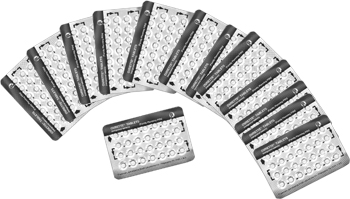|
|
 Previous Chapter Previous Chapter  Previous Page Next Page Previous Page Next Page  Next Chapter Next Chapter 
Using Clinical Judgment in Special Cases
Usually, a woman with any of the conditions listed below should not use POPs. In special circumstances, however, when other, more appropriate methods are not available or acceptable to her, a qualified provider who can carefully assess a specific woman’s condition and situation may decide that she can use POPs. The provider needs to consider the severity of her condition and, for most conditions, whether she will have access to follow-up.
- Breastfeeding and less than 6 weeks since giving birth
- Acute blood clot in deep veins of legs or lungs
- Had breast cancer more than 5 years ago, and it has not returned
- Severe liver disease, infection, or tumor
- Systemic lupus erythematosis with positive (or unknown) antiphospholipid antibodies
- Taking barbiturates, carbamazepine, oxcarbazepine, phenytoin, primidone, topiramate, rifampicin, rifabutin or ritonavir or ritonavir-boosted protease inihbitors. A backup contraceptive method should also be used because these medications reduce the effectiveness of POPs.
<
| Progestin-Only Pills for Women With HIV |
- Women can safely use POPs even if they are infected with HIV, have AIDS, or are on antiretroviral (ARV) therapy unless their therapy includes ritonavir. Ritonavir may reduce the effectiveness of POPs. (See Medical Eligibility Criteria, p. 330.)
- Urge these women to use condoms along with POPs. Used consistently and correctly, condoms help prevent transmission of HIV and other STIs. Condoms also provide extra contraceptive protection for women on ARV therapy.
- For appropriate breastfeeding practices for women with HIV, see Maternal and Newborn Health, Preventing Mother-to-Child Transmission of HIV.
|
| |

 Previous Chapter Previous Chapter  Previous Page Next Page Previous Page Next Page  Next Chapter Next Chapter 
|


 Previous Chapter
Previous Chapter Previous Page
Previous Page

